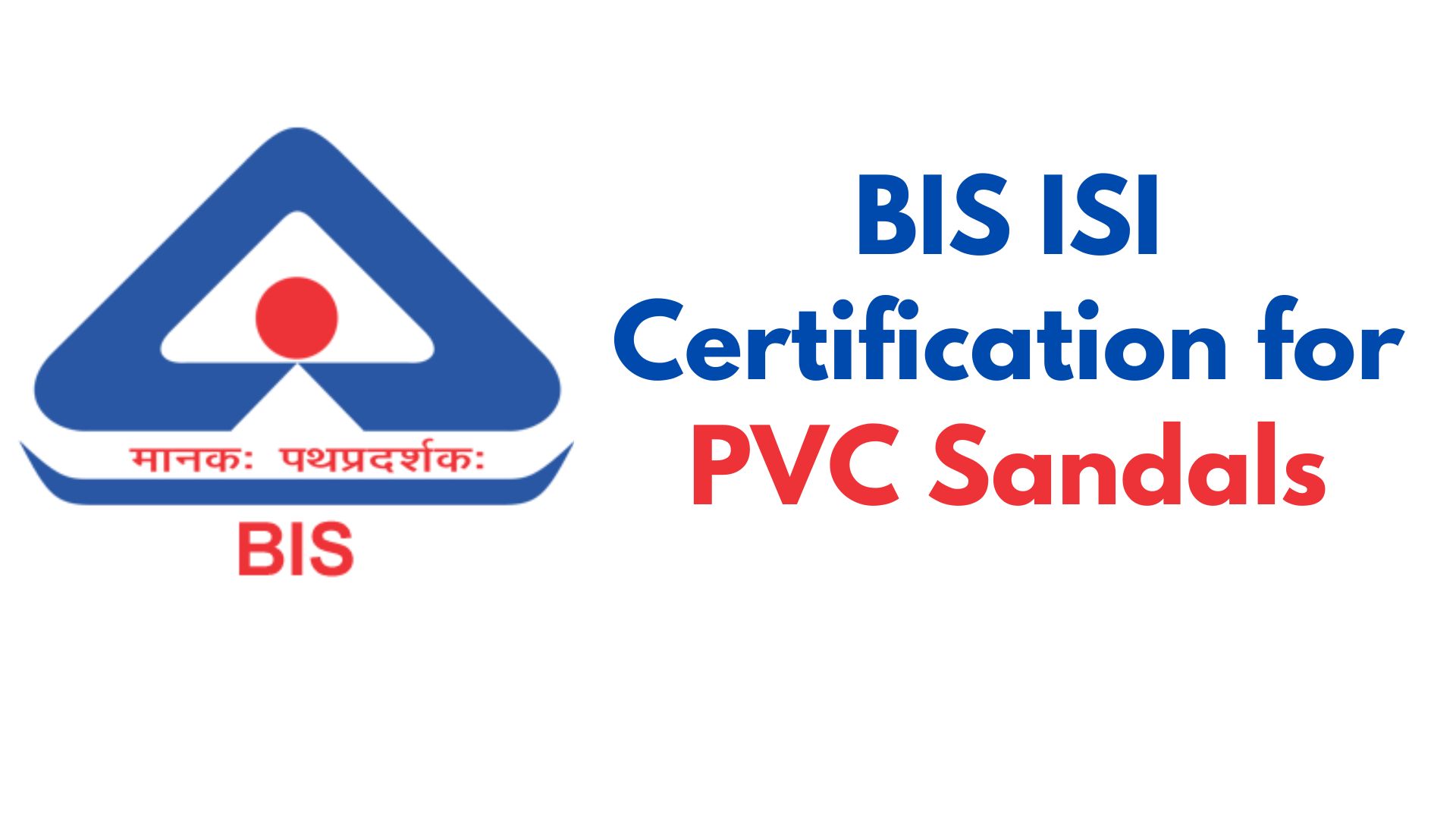PVC sandals are more durable and durable than traditional
rubber or leather shoes. However, its quality depends on the type of PVC
compound used in its production. Due to the high demand for PVC sandals in
India, standardization is required. Currently, all manufacturers of PVC sandals
are required to comply with BIS standards and therefore register their products
under the ISI labeling scheme.
Bureau of Indian Standards (BIS)
BIS is India's National Standards Organization that promotes
and regulates standards for products and commodities. BIS has established eight
central laboratories, four regional laboratories, and three branch laboratories
in India to test product samples during pre-screening and monitoring
activities. The government recommends, BIS certification of products for the
following reasons:
- Protect public health.
- We guarantee the highest quality.
- Protect customers from potentially dangerous objects.
- It increases consumer confidence.
Benefits of BIS Certification
BIS registration provides the following benefits:
- BIS-registered
items must meet specific requirements during the manufacturing process, thus
ensuring quality standards.
- Giving legitimacy to BIS-certified products by
guaranteeing quality performance and reliability.
- BIS-certified products reduce environmental hazards
because BIS prohibits the use of certain chemicals and materials within limits
defined by BIS.
- BIS registration is issued after product samples have been
tested in a laboratory established by BIS to ensure quality testing and
high-quality products.
Introduction to Indian Standards IS 6721:1972
Indian Standard IS 6721:1972 specifies quality, testing, and
labeling standards for injection-molded PVC sandals IS 6721:1972 applies mainly
to two types of sandals.
Type 1: Sandals with
only one part
Type 2: Two-part sandals
PVC sandals must be
made of materials specified in the specifications. The final sandal design must
comply with the IS 1638:1960 standard.
Mandatory Testing of PVC Sandals as Part of BIS ISI
Certification
BIS-accredited laboratories perform the following tests to
assess the overall quality of PVC sandals.
- Relative density test
- Tensile strength test
- Hardness test
- Evaluation of tear strength
- Volatility check
- Line strain test
The above tests should be performed in a well-equipped
laboratory and by the standards specified in the applicable standards. The sole
of each sandal must be marked with the required size, trademark, ISI, and
manufacturer name.
To qualify for the
ISI labeling program, each sandal manufacturer must obtain his BIS
registration. If a nonconformance is suspected, BIS will conduct a detailed
evaluation of production facilities, testing options, and quality control.
Required Documents for BIS ISI PVC Sandals Certification
The following documents are required for his BIS/ISI
certification of PVC sandals.
- Manufacturing unit
name and location
- Company legal
documents. Memorandum of Understanding (MOA), Certificate of Incorporation
(COI), and Partnership Certificate depending on the type of company.
- Thorough flow chart for making
sandals
- List of used machines and test
equipment
- Calibration instruments
- Third-Party Lab Report
- Layout Layout of the Factory
- Authorization letter
signed by the CEO indicating that the applicant in question is authorized to
process the license requirements.
- Details of the Indian representative if the applicant is
from another country.
How do I obtain BIS ISI certification for PVC sandals?
The steps to obtain BIS ISI certification for PVC sandals
are outlined below.
- Step 1: Submit the Application to BIS Form V is a specific application used to register items
under the ISI Label Program. The applicant must complete the form and send it
to her BIS along with the required documents (listed below) and the required
fees. The application fee includes the cost of on-site verification. Please
note that each application may only cover one product category.
- Step 2: Inspection of production units on site Upon receipt of the application and certified accessories,
BIS dispatches personnel to the manufacturing facility for a physical inspection.
The inspection process also includes collecting samples that require
certification. Officials will also inspect manufacturing processes and quality
control systems during the visit.
- Step 3: Sample review and report collected samples are sent to BIS-accredited laboratories
where they are tested for quality. After completing all required tests, the lab
records the results in a test report. Applicants will be notified about the
preparation of the test report via the contact details provided. Accordingly,
applicants must ensure that the report is obtained and submitted to BIS
promptly, as the validity of the report is limited.
- Step 4: Her BIS ISI
certification for PVC sandals is issued.
BIS checks the inspection report for errors. If the
authorities find no irregularities in the report, registration will be allowed.
This certificate allows the company to use its ISI mark on its products.
Do I need to renew my BIS ISI certification for PVC
sandals?
Yes! His BIS ISI certification for PVC sandals or other
products is valid for one year. The Practicing CA must certify to her before
submitting a renewal application.
What Happens If Someone Misapplies The ISI Marking?
BIS imposes hefty fines for misuse of ISI labels. The
following penalties will be imposed on those who engage in such acts:
- Fine of 50000
rupees
- 1-year imprisonment
Conclusion
In India, the compliance standards for manufacturing PVC
sandals are high. However, with proper planning and strategy, the company can
easily meet such standards while continuing to produce quality products. In a
legal environment, the production and quality of PVC sandals are based on BIS
standards and must be strictly adhered to avoid penalties.
If you have any doubts regarding any kinds of ISO certificates you can consult a leading Business consultant of ISO certification in Bangalore we will solve your queries.

